Printing and Laminating: What Thickness of Laminate is Best?
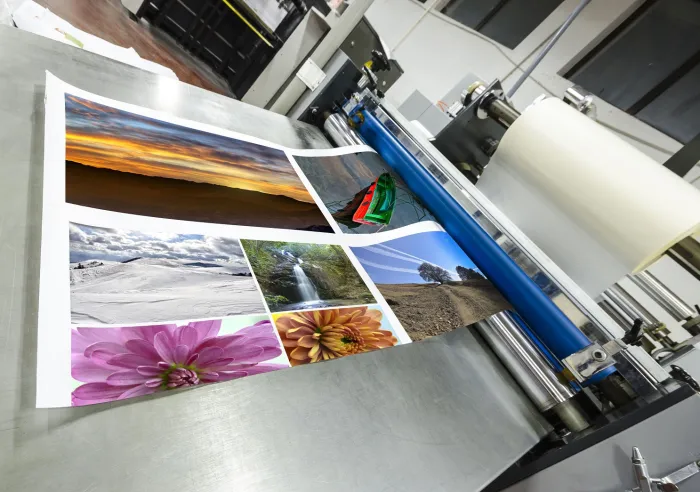
estimated reading time: 5 minutes
Printing and Laminating Services
The application of a clear plastic laminate is an optional
finishing technique that can benefit many types of print projects. In addition
to providing a layer of protection against dirt and moisture, laminates can
also be used to enhance the sheen and texture of printed pieces.
The laminates used for print projects are thin sheets of
plastic film. Commercially-applied laminates are fed from large rolls and use
heat and pressure to bond the plastic film to printed pieces. A laminate is a very
cost-effective option because it extends the life of the printing.
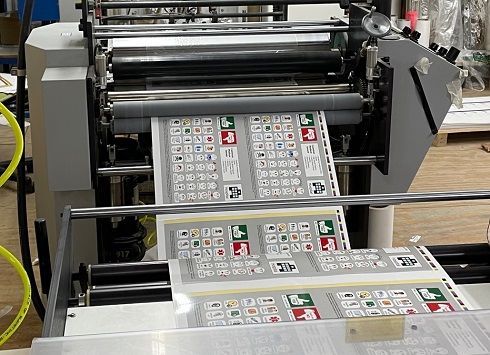
What Thickness of Laminate is Best?
Laminates are available in a variety of thicknesses. The
thickness of a laminate is measured in "mils." One mil equals .001" (1/1000th
of an inch). For example, a 3 mil laminate has a thickness of .003". Likewise, a
10 mil laminate has a thickness of .010".
Some print projects require a thick and heavy-duty laminate
whereas other projects have a need for a thin, light-duty laminate. There are also
many projects that have a need for a laminate that is somewhere in the medium-duty
range.
Which laminate thickness is best for a particular project will
depend on several factors, including how the printed pieces will be used, the
desired durability and longevity, whether the pieces need to be rigid or
flexible, and the monetary budget for the project.
Below is a list of the more popular and readily available laminate
thicknesses, including examples of print projects for which each laminate thickness
is well suited…
1.5 mil thickness (.0015") -
A 1.5 mil laminate is one of the thinnest films used for printed
pieces. It is frequently used on projects made from cardstock, such as business
cards, presentation folders, postcards, and book covers. Because cardstock is
relatively sturdy by itself, it generally does not need a heavier laminate to
add rigidity. Rather, the 1.5 mil laminate is most commonly applied to cardstock
projects to add a layer of protection against stains and spills, or to enhance
the sheen and texture.
Also, because 1.5 mil laminate is so thin and flexible, it
is a good fit for print projects that will be folded, such as brochures, pamphlets, event programs, visitor guides, or self-standing table tents.
Plus, being one of the most economical laminates, the 1.5 mil
thickness is a good choice for projects expected to have a relatively short
lifespan, such as flyers, sell sheets, temporary signs, quick-start guides, or instruction
sheets. The 1.5 mil option is also popular for adding a thin protective layer
to product labels.
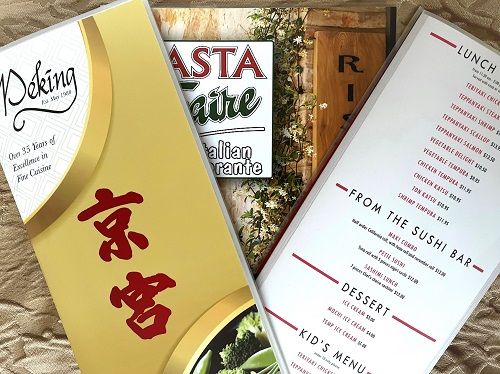
3 mil thickness (.003") -
A 3 mil laminate strikes a nice balance between flexibility
and durability. It has twice the thickness and resilience of a 1.5 mil
laminate, but is still considered to be a lighter duty laminate. Because it exhibits
some flexibility, it can be used on many of the same projects listed for the 1.5
mil laminate above.
Even though a 3 mil laminate is double the thickness of a
1.5 mil laminate, it still allows for printed pieces to be folded with relative ease. This feature
makes the 3 mil laminate suitable for bi-folded or tri-folded restaurant menus.
Also, because it has good resilience but is relatively light
in weight, the 3 mil laminate is ideal for maps, posters, diagrams, charts and
other printed sheets intended for display on a wall or other vertical surface.
In addition, its flexibility still allows for these larger sheets to be rolled
up and placed in shipping tubes for transit.
5 mil thickness (.005") -
The 5 mil laminate is a popular thickness that adds a
moderate degree of stiffness to printed pieces. As such, it works best for
projects that do not require folding, such as placemats or flat restaurant and
bar menus. The durability of a 5 mil laminate also makes it an excellent choice
for frequently-handled educational materials, such as those used in a classroom setting
or training environment.
In addition, the 5 mil laminate is a good thickness for use
on flashcards and other types of cards and card sets that are handled
repeatedly. Because of its high structural integrity, a 5 mil laminate also works
well for cards and sheets that are bound together with a metal ring or ball chain
inserted through a punched hole. If desired, metal grommets can be adding for
additional reinforcement to the holes.
The 5 mil laminate is also a good choice for bookmarks, such
as those printed for use as promotional giveaways. The 5 mil thickness greatly increases
the durability of the bookmark, preventing creases and tears from shortening
the longevity of the bookmark and its marketing message.
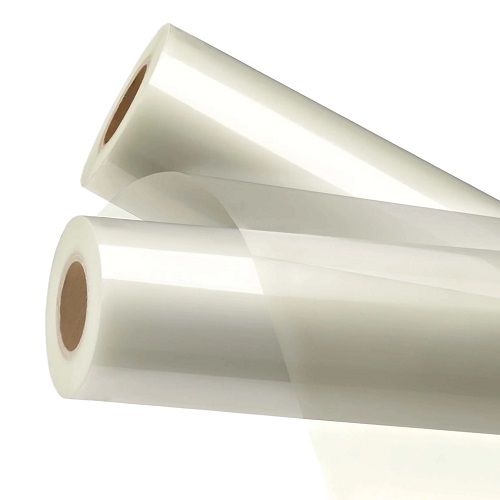
10 mil thickness (.010") -
The 10 mil thickness is a serious laminate. Extremely thick and
rigid, it is used for projects that need to have the highest level of protection
against physical damage as well as contaminants like dirt, grease, and moisture.
Because a 10 mil laminate is so substantial, it cannot be
creased or folded. This means it can only be used on printed pieces that will
remain flat.
Offering long-term durability, a 10 mil laminate is the
preferred choice for print materials subject to rough or frequent handling. It
is also excellent for printing intended for use in harsh environments, such as an
industrial or outdoor setting. This is because a 10 mil
laminate has the density required to withstand rugged conditions, especially
those that involve contact with dirt, grease, oil, or liquids.
The toughness of a 10 mil laminate makes it the perfect choice
for counter mats, machinery instructions, operational procedures, safety rules,
preflight checklists, reference sheets, spiral bound field guides and field manuals, emergency
instructions and any other documents that will be subject to rough handling or
harsh conditions, as well as any other printed pieces that need to be long lasting.
Where to buy Printing and Laminating Services for a low cost…
Color Vision has been a full-service provider of quality printing
and laminating services for decades. Best of all, our pricing is among the
lowest you will find for laminated printing. Plus, we offer just about every
type of laminate option you could possibly need.
So if you are looking for affordable printing and laminating
services, be sure to give us a call at 800-543-6299 to discuss your upcoming
project. Or, use our simple Quote Request form to send us your specifications
and will be happy to email a custom quote to you.
As always, we hope to hear from you soon and look forward to assisting with your printing and laminating needs!
Related Article - Laminated Printing: Is a Sealed Edge or Flush Cut Better?
Related Articles
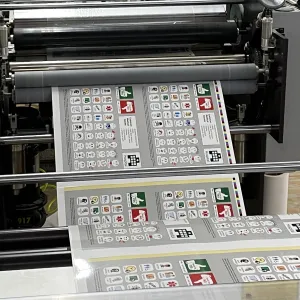
Buying Laminated Printing? Here Are 7 Things to Keep in Mind
Read This Article
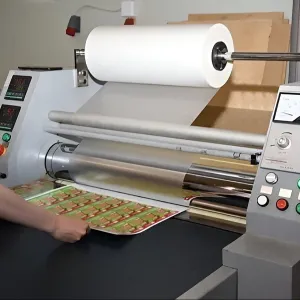
Laminated Printing Services: 8 Frequently Asked Questions
Read This Article
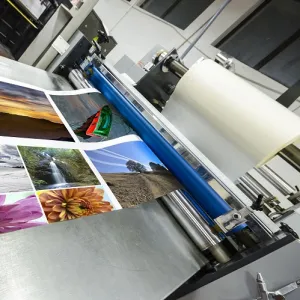
Printing and Laminating: What Thickness of Laminate is Best?
Read This Article
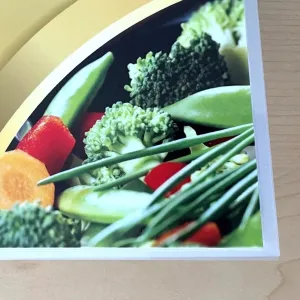
Laminated Printing: Is a Sealed Edge or Flush Cut Better?
Read This Article
- 1
- 2